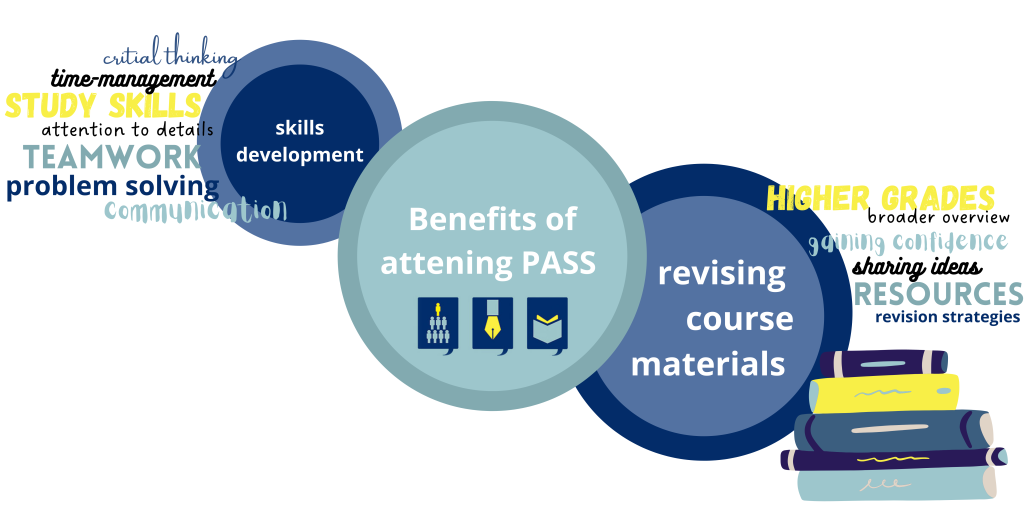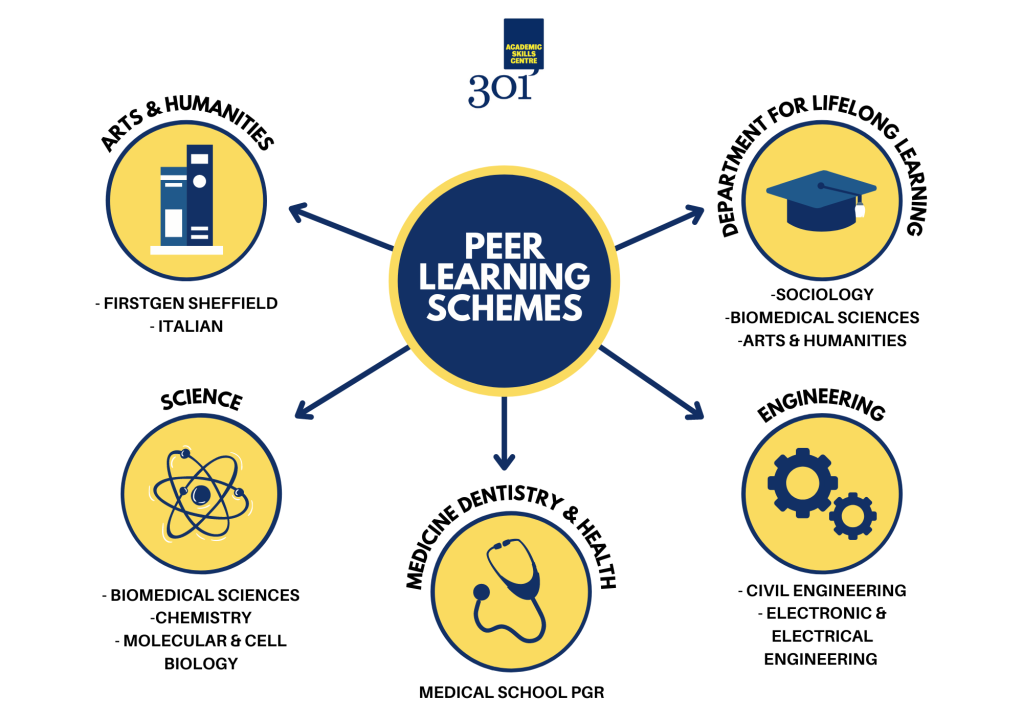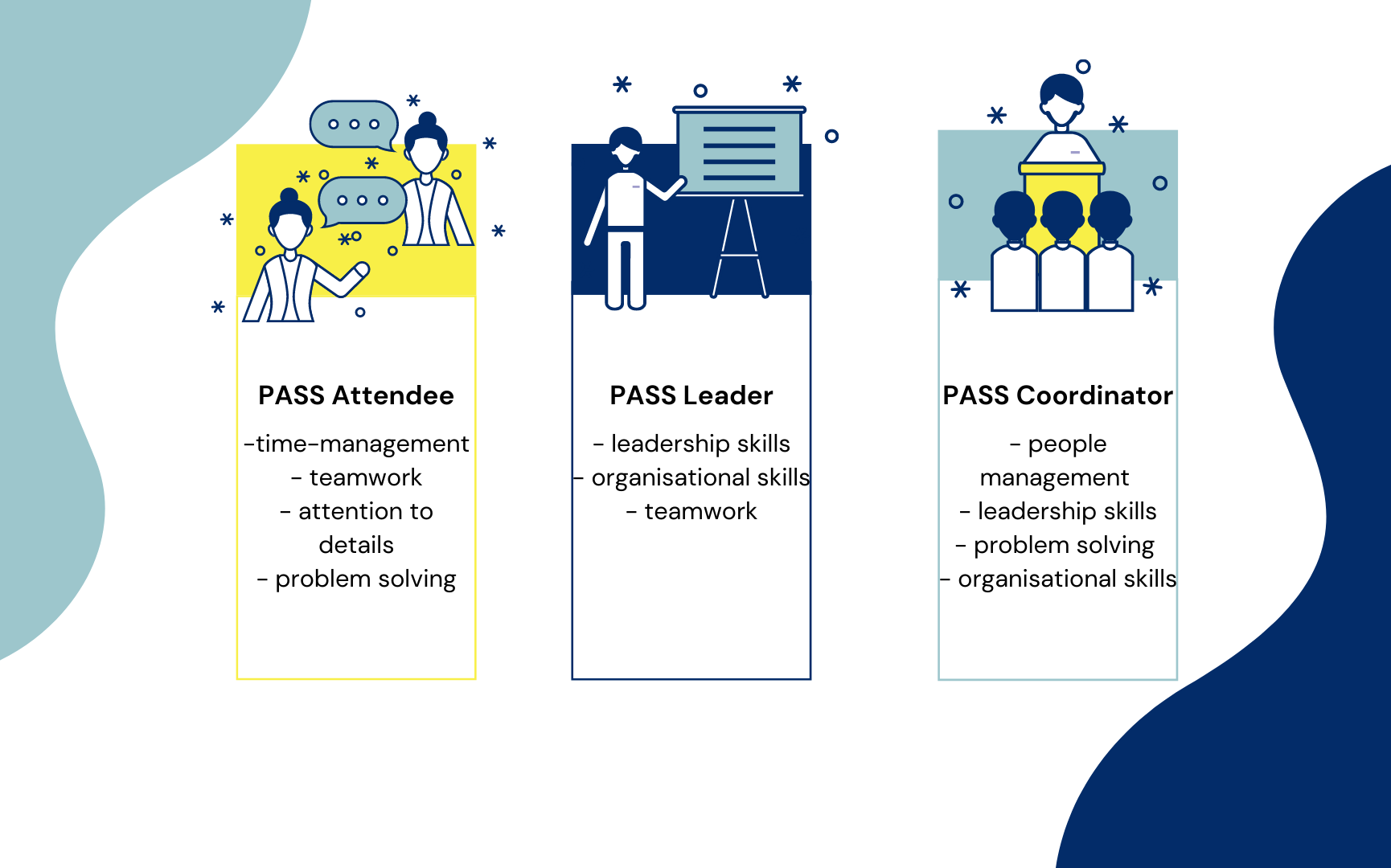Have you ever wanted to be a part of a study group but never found one?
Have you ever struggled to revise your course content?
Are you bored of studying alone all the time?

If you are a 1st year student answering these questions ‘yes’
this blog post is for
you
PASS has got you covered!

What is PASS?
PASS (Peer Assisted Study Sessions) is a model for peer learning where students from higher years, trained as Peer Leaders, facilitate learning of 1st year students. The weekly sessions are run in an informal and relaxed environment where you are encouraged to ask questions and work in a group. It’s a scheme popular among many Universities around the world! First tried out at the University of Kansas, Missouri in the 1970s and since has spread to over 1500 institutions in over 30 countries. So why not become a part of it yourself?

Why get involved?
PASS scheme is a great way for expanding your study skills but also aiding personal development. It allows you to revise content material with your peers and receive new resources and revision strategies that might be useful before the exams. Students who participate tend to achieve higher grades throughout their course.

Similar schemes that are supported by 301 Skills Centre:
PAL – Peer Assisted Learning – 3 sessions each semester
FirstGenSheffield – scheme to first year students in Arts, Humanities and Social Sciences who are the first in their family to go to University – 3 sessions each semester
0PAL – Peer Assisted Learning in Year Zero – these are PAL sessions for students on a foundation year – 3 sessions each semester
Check here if our Department run the schemes

PASS – Civil Engineering and Biomedical Sciences.
PAL – Molecular and Cell Biology, Chemistry, Italian (Advanced), Electronic and Electrical Engineering, and in the Medical School for PhD students
0PAL – Arts and Humanities, Sociology, Health and Human Sciences, and Biomedical Science
If the scheme is not available in your Department, you could always start your own study group! 301 Team is here to help you make it possible!
PASS from my experience
1st year – PASS Participant
I have been a part of the Biomedical Science PASS for 2 years already. In the first year of my undergraduate degree, I attended the weekly PASS sessions on my own. It was a great experience that allowed me to meet new people from my course and become more communicative, which was extremely useful for me as an international student struggling with the language especially with the biological jargon. It was also a lot easier to get involved in these sessions as compared to a lecture where the amount of people can be overwhelming. In addition, the environment was so relaxed that I didn’t feel any pressure but at the same time could ask any question that came to my mind. When it comes to the academic value, I found the sessions helping me with the revision of the modules and I also realised they helped me to get an understanding of the topics from a broader perspective. This allowed me to feel confident about my knowledge and use that as my advantage in the next years.

2nd year – PASS Leader
During the second year, I decided I still want to be involved in the scheme so I applied to become a PASS Leader. I was responsible for preparing weekly sessions with interactive tasks for first year students. It was very challenging to juggle it with my course commitments and part-time job on the side, but I managed and it allowed me to expand my time-management skills. Another challenge I had to overcome, was to use an online platform and resources to run the sessions as due to restrictions the sessions were held online. I found it to be an enjoyable experience and remarkably rewarding as hearing student feedback made me feel I returned what I was given in the first year.

3rd year – PASS Coordinator
After the second year, I thought it would be fantastic to still be a part of the scheme for the following year so I applied to become a PASS Coordinator. This is my role for this year and I am coordinating the leaders work, by giving them feedback and running debrief sessions so that they can get the most from the volunteering with PASS. I’m also looking forward to organising a big PASS session where participants from all PASS groups will be able to compete in a big quiz on their course material.

PASS and employability
Being involved in PASS can help you develop skills that your future employer might be looking for! It’s a great idea to use your PASS experience during a job interview when asked to describe a time where you used a particular skill. Here is list of some of them that you might be able to develop while being involved in PASS from a participant to a coordinator.

Hopefully, after reading this blog post you will definitely want to be a part of the PASS scheme!
As I described before, the benefits are just enormous and it’s a great uni experience as part of your degree.
So …
get involved and experience it first hand!
If you have any questions email us on 301@sheffield.ac.uk!
Dagmara
301 Intern